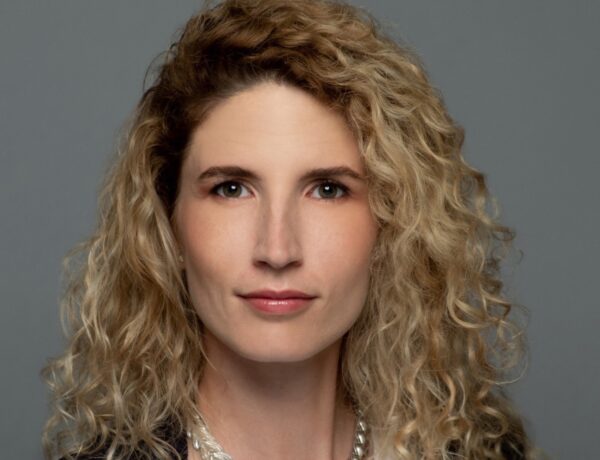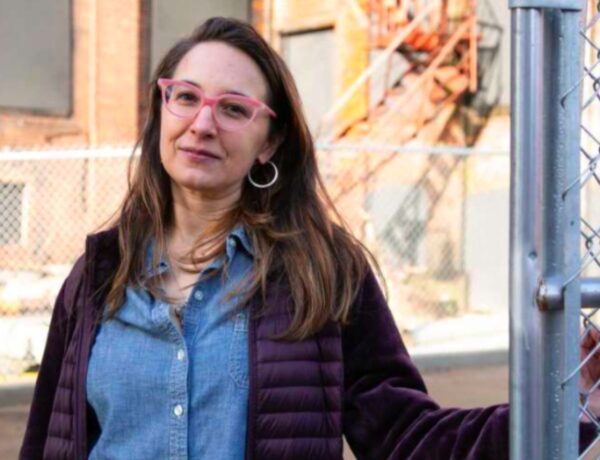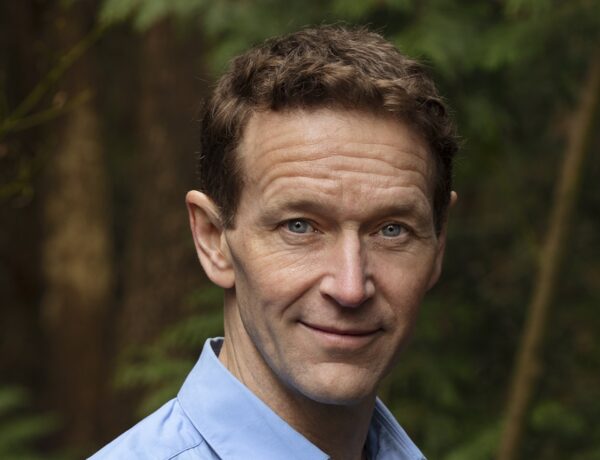Maya Binyam is the author of Hangman, published by FSG (US), Pushkin Press (UK), Aufbau Verlage (DE), and Jelenkor (HU) in 2023. Her work has appeared in the Paris Review, the New Yorker, the New York Times Magazine, New York, Bookforum, Columbia Journalism Review, the New York Times Book Review, Best American Short Stories, and elsewhere.
She is a contributing editor at the Paris Review and has previously worked as an editor at Triple Canopy and the New Inquiry, and as a lecturer in the New School’s Creative Publishing and Critical Journalism program. She lives in Los Angeles.
Hi Maya, welcome to Famous Writing Routines, great to have you here with us today! You’re a contributing editor at the Paris Review and your work has appeared in many prestigious publications like the New Yorker and the New York Times Magazine. Can you talk to us about your journey to becoming a published writer, and some of the challenges you faced along the way?
As a child I never imagined that my writing would be published; writing felt like a habit, a mode of expression, and the industry responsible for producing and disseminating it felt totally mysterious and uninteresting to me. When I graduated from college, I was desperate for isolation, so I moved to Ethiopia, where I had family but no friends.
Eventually I got lonely and ran out of money, so I took a publishing job in New York––and then a whole host of other jobs that I could do on nights and weekends: tutoring, ghost writing, etc. I began publishing my writing because it felt like an effective way to force myself to deal with the questions I was lazily lolling around in my head. And then I kept doing it because it felt like a good remedy for the boredom I was sometimes experiencing at work.
Eventually I was able to find jobs that engaged me more––teaching, editing. But I’ve always written in the crevices between full-time work, and it’s always been difficult to balance the things I have to do to materially sustain my life and the things I need to do to give it meaning.
You live in Los Angeles, a city that has inspired countless artists and writers throughout history. What do you love about living in LA, and how does the city influence your work?
I’m very new to Los Angeles, and I leave the city constantly. But I’m very happy that it’s the place I come back to. I used to have some sense that Los Angeles would be good for my writing, but the longer I live here the more I realise it’s probably just as good for my writing as any other place I might live, and that the things that hinder my writing elsewhere continue to be hindrances here.
You’ve worked as an editor at Triple Canopy and the New Inquiry, as well as a lecturer in the New School’s Creative Publishing and Critical Journalism program. How have these experiences influenced your own writing, and your approach to writing and storytelling?
Editing has been immensely instructive. I tend to think of it as another, more hands-on, malleable form of reading. At its best, it requires learning the internal rules of a piece, and then measuring those rules against ones that might help the author more successfully communicate their ideas.
Often I edit writing that seems to share very little with my own, so it becomes a transporting experience, and when I return to my work, I have an expanded sense for what’s possible. Teaching, for me, has worked in much the same way; students come to the classroom with a set of impulses, and together we figure out whether or not those impulses are helping them deepen their interests.
I don’t teach now, and I miss it. It inspired a good deal of reflection; in the classroom, we were often holding ourselves to ideals that I may not have always satisfied. So I’d come home and wonder if I might have done something another way, asked a different set of questions.
As a writer, you cover a wide range of topics, from politics and culture to art and literature. How do you decide which stories to tell, and what inspires you to write about certain subjects?
There have been times that I’ve decided to tell a story because there was some amount of money attached to it, money that I believed I needed. But that is always the worst case scenario. In the best case, how I decide to write about something is mysterious.
If I write about a cultural object––a book, a movie, a work of art––usually it’s because I think it’s a productive vessel for some other phenomenon happening in the world, or because I can trace its impression on people around me, for better and for worse.
Sometimes I’m motivated to write about something from a feeling of anger or appreciation, but usually I’m motivated by confusion. And even if I think I’m motivated by anger or appreciation, those feelings usually reveal themselves to be rooted in confusion. Which is just to say that I find something worth writing about only if I have a genuine, pressing question about it.
Your debut novel, Hangman, has been described as an enthralling and original story about exile, diaspora, and the impossibility of Black refuge in America and beyond. Can you tell us a bit about what inspired you to write this book, and what themes and ideas you wanted to explore?
I wrote the first draft of Hangman while I was at a residency in the Adirondacks, where I could work, swim, and hike as much as I wanted without having to worry about feeding myself or making money or paying rent. In a practical sense, I found those circumstances very inspiring.
More thematically, I was interested in writing about the collective ideals that attend the idea of “refuge”––a political term with no formal, legally binding definition. As a place, “refuge” tends to connote safety, livelihood, and shelter, especially when it’s distinguished from a country of origin, which must necessarily be a site of persecution. But for black immigrants seeking refuge in countries governed by logics of incarceration and enslavement, those distinctions can become very muddied.
The narrator of Hangman struggles with binary thinking, and is mired in questions of life and death. He believes he’s protected by his status as an American, and that the various people he encounters on his journey can be read as symbols for the state of the country he has left behind. Unsurprisingly, things are more complicated than he would like to believe; I hoped that through him, I could explore how a “refuge” is less a place, and more a set of relations.
The protagonist of Hangman returns to sub-Saharan Africa after twenty-six years in America, only to find that he doesn’t recognize the country or anyone in it. Can you talk to us about the challenges of writing about displacement, identity, and belonging, and how you approached these topics in your book?
For me, at least, writing about any of those topics would be intensely difficult if that’s what I was setting out to do. But what attracted me to the novel was the narrator––his voice, initially, which eventually helped me discover his psychology, which happens to be preoccupied by those questions of displacement, identity, and belonging that you mention. But he never names those questions outright––I don’t even think that those words are in his vocabulary.
I’ve found that the words I use when I’m analysing a book, even my own, are very different from the ones I might use when I’m writing, which tend to be more immediately experiential and less thematic, words like funny, sad, painful, uncomfortable, annoyed. I have political and personal beliefs about how all of the things you mentioned condition social life, but I try not to have them at the front of my mind while I’m writing fiction. I’m more interested in how those ideas show up surreptitiously, when I’m not so consciously wielding them.
Can you tell us about your writing routine for the book? What did a typical day look like when you were working on Hangman?
My routine varied drastically. I wrote six drafts of the novel over the course of one year, so I would have long periods of not working on it at all, and then very intense spurts where it was all I had time for. But even then I usually had other work to do, so I would revise only in the mornings, as early as possible, before I could get distracted by other pressing things in my life. Writing the first draft was more programmatic. I had taken time off of work and could spend most of the day writing. I’d wake up; write for a few hours; break for exercise, food, a little reading; and then write for a few more hours in the afternoon.
If you could have a conversation with any author throughout history about their writing routine and creative process, who would that person be?
Realistically, the authors of the bible.
I’d love to know about the books you’re reading at the moment. What have been some of your favourite recent reads?
I’ve been in a very embarrassing reading rut lately, during which I’ve struggled to focus on anything. Whenever this happens it feels like my life is ending. Historically, Toni Morrison has helped to pull me out of it. I took a very long walk through Addis Ababa last month, pausing for coffee and to read Sula, which I finished that same day. That’s my ideal reading pace: quick, but broken up by long, slow walks.
I really enjoyed Deborah Levy’s new novel, August Blue, which I read in the same way, and I’ve been slowly re-reading G by John Berger. I first read it when I was eighteen, having absolutely no context for the novel or its author, but it quickly became an obsession; everything I wrote for the following four years was fan-fiction. Now my copy is falling apart completely. The spine has lost its glue, and so the pages are always falling out, and require constant rearrangement.
Your writing has been praised for its sharp insights, incisive analysis, and elegant prose. How do you approach the craft of writing, and what advice would you give to aspiring writers who want to improve their own writing skills?
For me, at least, writing is a constant struggle, and anytime I feel comfortable in an approach, I inevitably have to remake it. Craft-wise, though, the most valuable thing I have is my ear––which is sort of an unhelpful metaphor, because writing (again, at least for me) is a silent enterprise. But there is something sonic about putting words on a page.
Developing a sense of rhythm and pacing has been immensely helpful. It sounds idiotic, but I really believe in sentences. So my advice would be to try to understand your own impulses, which often means unmaking them. What colloquial phrases do you rely on? How many items do you usually include in a list? Even understanding your punctuation tics can be helpful.
What does your current writing workspace look like?
I have a desk in the corner of my living room, between two windows. When I want to sit at it, I have to drag a chair from my dining table, which isn’t convenient, and I’ve started working elsewhere around the house to avoid doing it. A friend recently recommended writing at the coffee table and sitting on the floor, so I’ve been trying that. But I’ve had more success writing while out of the house––at the library, usually.



No Comments